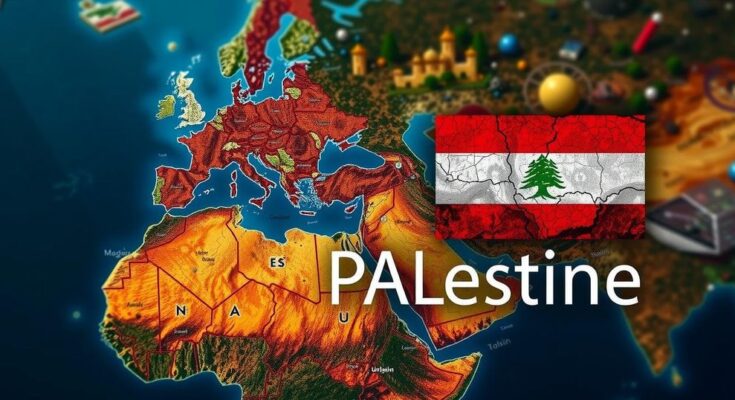The article discusses the escalating humanitarian crises in the Occupied Palestinian Territory, Lebanon, Ukraine, and West and Central Africa, highlighting the severe impact of violence, restrictions, and natural disasters on civilian populations. Reports indicate rising casualties, limited access to humanitarian aid, and urgent needs for food and medical supplies, necessitating immediate action from the global community.
The situation in the Occupied Palestinian Territory continues to deteriorate with alarming reports of casualties, particularly in North Gaza, exacerbated by an ongoing Israeli siege. UNICEF disclosed the tragic death of over 50 children within just 48 hours due to intensified airstrikes. Humanitarian access remains severely restricted, raising concerns about the safety of civilians who are unable to receive adequate support. The World Food Programme warns of potential famine as humanitarian supplies dwindle, underscoring an urgent need for intervention.
In Lebanon, the humanitarian crisis now exceeds the devastation experienced during the 2006 war, with a significant increase in attacks on healthcare personnel and facilities. The World Health Organization reported that 110 healthcare workers have been killed since October 2023, with hospitals sustaining considerable damage from airstrikes. Despite these challenges, humanitarian convoys continue to deliver essential supplies to affected populations, showcasing resilience in the face of adversity.
In Ukraine, recent assaults in Kharkiv have resulted in numerous civilian injuries and infrastructural damage, with nearly 100 casualties reported in early November across various conflict-affected regions. Emergency responders and aid organizations are providing immediate assistance, including first aid, psychological support, and logistical relief such as warm blankets and shelter materials, aiming to address the escalating humanitarian crisis.
Additionally, West and Central Africa faces unprecedented flooding, affecting over 7 million individuals across 16 nations, particularly Chad, Niger, Nigeria, and the DRC. The floods have led to over 1,500 fatalities and significant displacements, further straining humanitarian resources already challenged by previous conflicts and natural disasters. Urgent humanitarian support and resilience-building measures are essential to address this crisis, with the Acting Emergency Relief Coordinator allocating funds to assist the most impacted countries.
Overall, across various regions, a pattern of escalating humanitarian needs emerges, marked by violence, natural disasters, and systemic inadequacies in healthcare and support services. The international community must prioritize humanitarian responses to address these critical situations and prevent further deterioration.
The current geopolitical climate in regions such as Gaza, Lebanon, Ukraine, and West and Central Africa reflects a multifaceted humanitarian crisis. Ongoing conflicts have exacerbated the challenges faced by civilians, with reports of high casualties and dire conditions. Organizations such as UNICEF and OCHA are monitoring these developments closely, providing critical humanitarian support despite significant barriers to access. The international response remains crucial as the crises evolve and the needs of affected populations grow increasingly urgent.
In conclusion, the crises unfolding in the Occupied Palestinian Territory, Lebanon, Ukraine, and West and Central Africa highlight the urgency for international humanitarian assistance. The escalating violence and natural disasters have left millions vulnerable, with pressing needs for food, medical care, and shelter. Organizations on the ground strive to deliver aid amidst dangerous conditions, yet the scale of the crises requires a coordinated and robust response from the global community to ensure the well-being and safety of those affected.
Original Source: www.unocha.org




